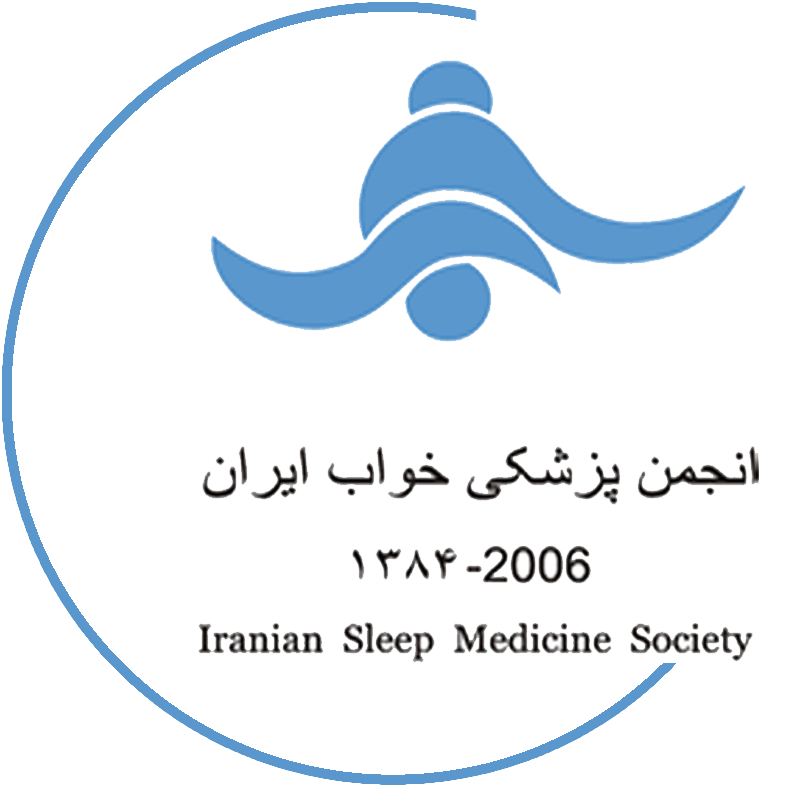Effectiveness of Internet-based Cognitive-Behavioral Therapy for Insomnia during Quarantine of SARS-COV-2 Pandemic: A Controlled Trial
Abstract
Background and Objective: In the late 2019, an acute respiratory syndrome [severe acute respiratory syndrome coro-navirus 2 (SARS-CoV-2)] resulted in a pandemic coronavirus disease (COVID-19). This study was designed to com-pare the efficacy of internet-based cognitive behavioral therapy for insomnia (ICBT-I) with online relaxation training for management of insomnia during SARS-CoV-2 pandemic.
Materials and Methods: This controlled trial was conducted on adults (18-65 years) with the complaint of insomnia who called psychology call centers in Mashhad, Iran, from March to June 2020. Participants with insomnia symptoms starting after SARS-CoV-2 pandemic who had Insomnia Severity Index (ISI) scores of ≥ 15 were included in the study. Five weekly sessions of ICBT-I as the intervention were compared with 5 weekly online relaxation training sessions in the control group. ISI before and after 5 weeks of follow-up was compared in both groups.
Results: From a total cohort of 144 subjects included in the study, 98 were excluded and the remainder were allocated to 23 cases and 23 control subjects. During follow-up period, 5 individuals (21.7%) dropped out in each group. The mean ISI scores improved after therapy (20.6 to 8.5 and 21.8 to 13.0 for intervention and control groups, respectively).
Conclusion: ICBT-I significantly improved insomnia severity during home quarantine of SARS-CoV-2 pandemic. We suggest that ICBT-I could be an effective and feasible alternative in pandemic of an infectious disease. Clients accepted ICBT-I with a minor drop-out in our study.
2. Wang C, Pan R, Wan X, et al. Immediate psychological responses and associated factors during the initial stage of the 2019 coronavirus disease (COVID-19) epidemic among the general population in China. Int J Environ Res Public Health 2020; 17: 1729.
3. Gao J, Zheng P, Jia Y, et al. Mental health problems and social media exposure during COVID-19 outbreak. PLoS One 2020; 15: e0231924.
4. Rogers JP, Chesney E, Oliver D, et al. Psychiatric and neuropsychiatric presentations associated with severe coronavirus infections: A systematic review and meta-analysis with comparison to the COVID-19 pandemic. Lancet Psychiatry 2020; 7: 611-27.
5. Kaldo V, Jernelov S, Blom K, et al. Guided internet cognitive behavioral therapy for insomnia compared to a control treatment-A randomized trial. Behav Res Ther 2015; 71: 90-100.
6. Sanchez-Ortuno MM, Edinger JD. Cognitive-behavioral therapy for the management of insomnia comorbid with mental disorders. Curr Psychiatry Rep 2012; 14: 519-28.
7. Wise J. Cognitive behavioural therapy can help chronic insomnia, review finds. BMJ 2015; 350: h3076.
8. Zachariae R, Lyby MS, Ritterband LM, et al. Efficacy of internet-delivered cognitive-behavioral therapy for insomnia-A systematic review and meta-analysis of randomized controlled trials. Sleep Med Rev 2016; 30: 1-10.
9. Bonin EM, Beecham J, Swift N, et al. Psycho-educational CBT-Insomnia workshops in the community. A cost-effectiveness analysis alongside a randomised controlled trial. Behav Res Ther 2014; 55: 40-7.
10. Ye YY, Chen NK, Chen J, et al. Internet-based cognitive-behavioural therapy for insomnia (ICBT-i): A meta-analysis of randomised controlled trials. BMJ Open 2016; 6: e010707.
11. Faul F, Erdfelder E, Lang AG, et al. G*Power 3: A flexible statistical power analysis program for the social, behavioral, and biomedical sciences. Behav Res Methods 2007; 39: 175-91.
12. Yazdi Z, Sadeghniiat-Haghighi K, Zohal MA, et al. Validity and reliability of the Iranian version of the insomnia severity index. Malays J Med Sci 2012; 19: 31-6.
13. Bastien CH, Vallieres A, Morin CM. Validation of the insomnia severity index as an outcome measure for insomnia research. Sleep Med 2001; 2: 297-307.
14. Thorndike FP, Ritterband LM, Saylor DK, et al. Validation of the insomnia severity index as a web-based measure. Behav Sleep Med 2011; 9: 216-23.
15. Bhaskar S, Hemavathy D, Prasad S. Prevalence of chronic insomnia in adult patients and its correlation with medical comorbidities. J Family Med Prim Care 2016; 5: 780-4.
16. Blanc J, Spruill T, Butler M, et al. 0885 is resilience a protective factor for sleep disturbances among earthquake survivors? Sleep 2019; 42: A356.
17. Luik AI, van der Zweerde T, van Straten A., et al. Digital delivery of cognitive behavioral therapy for insomnia. Curr Psychiatry Rep 2019; 21: 50.
18. Bastien CH, Morin CM, Ouellet MC, et al.
Cognitive-behavioral therapy for insomnia: comparison of individual therapy, group therapy, and telephone consultations. J Consult Clin Psychol 2004; 72: 653-9.
19. Ye YY, Zhang YF, Chen J, et al. Internet-based cognitive behavioral therapy for insomnia (ICBT-i) improves comorbid anxiety and depression-a meta-analysis of randomized controlled trials. PLoS One 2015; 10: e0142258.
20. Ritterband LM, Thorndike FP. The further rise of internet interventions. Sleep 2012; 35: 737-8.
21. Forand NR, Barnett JG, Strunk DR, et al. Efficacy of guided iCBT for depression and mediation of change by cognitive skill acquisition. Behav Ther 2018; 49: 295-307.
22. Thiart H, Ebert DD, Lehr D, et al. Internet-based cognitive behavioral therapy for insomnia: A health economic evaluation. Sleep 2016; 39: 1769-78.
23. Lovato N, Lack L, Wright H, et al. Evaluation of a brief treatment program of cognitive behavior therapy for insomnia in older adults. Sleep 2014; 37: 117-26.
| Files | ||
| Issue | Vol 5 No 3 (2020): Summer | |
| Section | Original Article(s) | |
| DOI | https://doi.org/10.18502/jss.v5i3.6920 | |
| Keywords | ||
| Insomnia; Cognitive behavioral therapy; Internet-based intervention; Remote consultation; COVID-19; SARS-CoV-2 | ||
| Rights and permissions | |

|
This work is licensed under a Creative Commons Attribution-NonCommercial 4.0 International License. |



